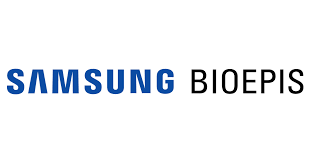- Bone Health
- Immunology
- Hematology
- Respiratory
- Dermatology
- Diabetes
- Gastroenterology
- Neurology
- Oncology
- Ophthalmology
- Rare Disease
- Rheumatology
Poster Roundup: Results Presented for Samsung Bioepis Biosimilars for Adalimumab, Infliximab
Real-world clinical data compiled for patients with autoimmune disorders were presented at EULAR 2021.
Real-world findings for 2 Samsung Bioepis biosimilars were presented at EULAR 2021 and offered support for clinicians' use of these products in place of originator agents.
Infliximab Biosimilar vs Originator
A real-world analysis has demonstrated that patients with ankylosing spondylitis (axSpA) or rheumatoid arthritis (RA) can be initiated on the infliximab biosimilar SB2 (Flixabi) and patients with axSpA, RA, or psoriatic arthritis (PsA) can be switched to SB2 from the reference product without loss of disease control or dose penalty over the 12-month, post-initiation or transition period.1
“Over 56% of SB2-naïve patients and over 79% of patients transitioned from the reference product remained on SB2 at 12 months following initiation,” investigators reported at EULAR 2021. The results were from the PERFUSE study, an ongoing, noninterventional study of patients with rheumatology (n = 496) and gastroenterology (n = 737) conditions receiving infliximab as routine therapy.
PERFUSE was initiated to provide understanding of long-term outcomes in patients who were started on SB2 in the real-world setting. Dosage, disease activity, and persistence on SB2 over time and up to 24 months after initiation were end points.
Investigators aim to continue the study to 24 months post initiation of SB2.
Adalimumab Biosimilar vs Originator
A real-world study of patients with autoimmune diseases demonstrated equivalence between adalimumab reference product and the biosimilar SB5 (Hadlima).2
Investigators enrolled patients with RA, axSpA, PsA, ulcerative colitis, and Crohn disease who were initiated on SB5 following a minimum 16 weeks of treatment with the originator product (Humira). The study was conducted at clinics in Belgium, Germany, Ireland, Italy, Spain, and the United Kingdom.
Investigators sourced retrospective clinical data on patients (N = 504) for the 24 weeks prior to transition to SB5 and prospective or retrospective data for the 48 weeks following transition. Primary outcomes were baseline clinical characteristics, disease activity, and clinical management over time.
Authors of the study said for most patients there was no meaningful difference in disease score or dose regimen of SB5 by week 48 after transition to the biosimilar. Follow-up will continue until the fourth quarter of 2021.
“This investigative analysis provides a first insight into clinical management of patients over 48 weeks, in a contemporary cohort of European Union patients with established RA, axSpA, and PsA, switched from reference product to SB5 in clinical practice,” they wrote.
References
1. Fautrel B, Bouhnik Y, Dougados M, Freudensprung U, Addison J. PERFUSE: a French prospective/retrospective noninterventional cohort study of infliximab-naïve and transitioned patients receiving infliximab biosimilar SB2; 12-month analysis. Presented at: EULAR 2021; June 2-5, 2021. Poster 0614.
2. Müller-Ladner U, Gaffney K, Jadon D, Freudensprung U, Addison J. The PROPER study: interim analysis of a pan-EU real world study of SB5 biosimilar following transition from reference adalimumab in patients with rheumatoid arthritis, axial spondyloarthritis or psoriatic arthritis. Presented at: EULAR 2021; June 2-5, 2021. Abstract 0204.
Newsletter
Where clinical, regulatory, and economic perspectives converge—sign up for Center for Biosimilars® emails to get expert insights on emerging treatment paradigms, biosimilar policy, and real-world outcomes that shape patient care.

